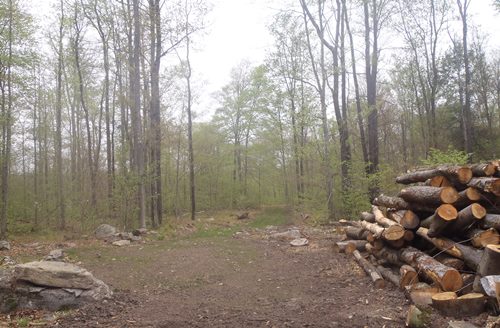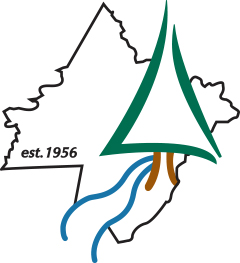
Timber Harvest
In Pennsylvania, all earth disturbance activities, including a timber harvest, must be undertaken in accordance with the Department of Environmental Protection’s (DEP) Chapter 102 Erosion and Sediment Control regulations adopted under the authority of the Clean Streams Law.
Under these regulations, all earth moving or earth disturbance activities over 5,000 sq. ft., including timber harvesting activities, must have an Erosion and Sediment Control Plan developed, implemented and maintained to minimize accelerated erosion and resulting sedimentation to the waters of the Commonwealth.

Timber harvesting is considered an earth disturbance activity because it disturbs the forest floor and exposes soils to accelerated erosion. While the felling of trees itself does not cause problems, the activities involved in moving the product from the stump to the mill may cause erosion and sediment pollution.
Timber harvesting operations that will disturb 25 or more acres require a permit from DEP (the earth disturbance area is the total area of haul roads, landings, and skid trails). Inquiries as to whether or not a permit is required should be addressed to the local county conservation district or DEP Regional Office.
For Timber Harvest Projects please submit the following:
Pike County Conservation District Application and Fee Schedule for Services (PDF)
Erosion and Sediment Control Plan for a Timber Harvesting Operation (PDF)
In the event that there is a temporary and/or permanent stream/wetland crossing on the proposed project see permit information below:
Chapter 105 General Permit #7 – Minor Road Crossing
Chapter 105 General Permit #8 – Temporary Road Crossing
DEP 105 Fee Calculation Worksheet
Please see DEP’s Best Management Practices for Timber Harvest Operations guide below for information on mitigating erosion and sediment pollution.
Best Management Practices for Timber Harvest Operations (PDF)

Our community starts with you. Land use is decided at the local level in PA with citizens and government officials working together to identify what natural resources are important in each community.
Active citizens are essential. Get Involved! Effective planning cannot happen in a vacuum; it must be a reflection of community values. You Can Make a Difference »
